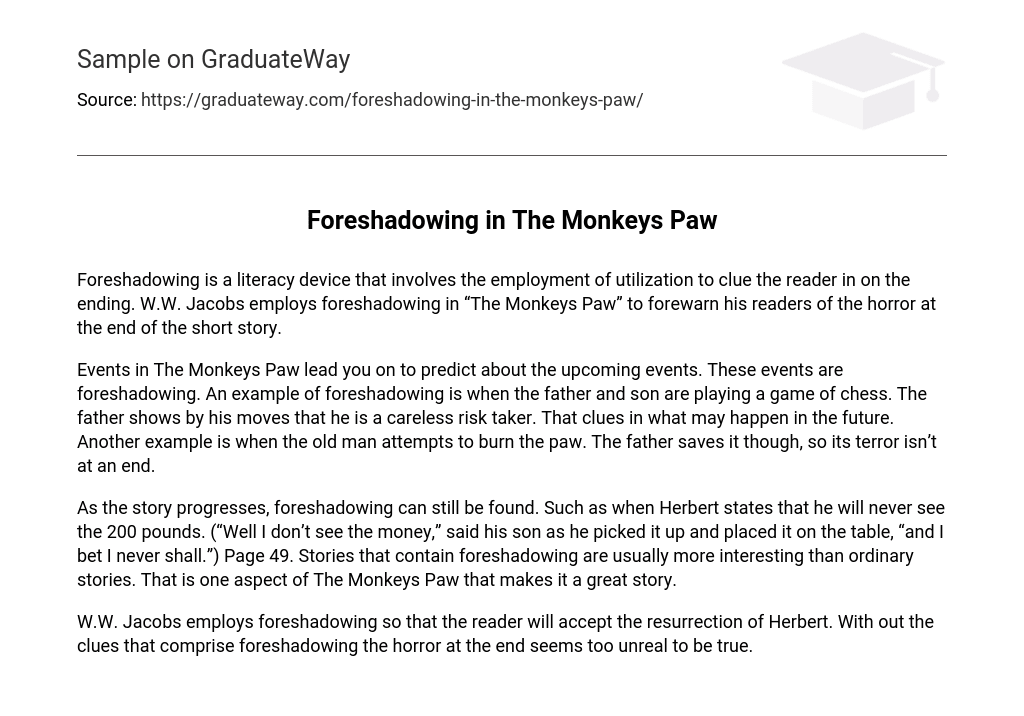Foreshadowing is a literary device used by W.W. Jacobs in “The Monkeys Paw” to give readers a hint of the horrifying ending of the short story.
The events in The Monkey’s Paw provide foreshadowing, leading the reader to predict future events. One instance of foreshadowing occurs during a game of chess between the father and son, where the father’s risky moves reveal his careless nature, hinting at what may occur in the future. Another example is when the old man tries to burn the paw, but the father prevents it, indicating that the horror surrounding the paw is not yet over.
As the story progresses in “The Monkeys Paw,” foreshadowing can still be found. For instance, Herbert expresses doubt that he will ever see the 200 pounds, stating, “Well I don’t see the money,” said his son as he picked it up and placed it on the table, “and I bet I never shall.” (Page 49) Stories that incorporate foreshadowing are typically more appealing than regular stories, and this is one of the reasons why “The Monkeys Paw” is considered a great story.
W.W. Jacobs uses foreshadowing to make the reader believe in Herbert’s resurrection. Without the foreshadowing clues, the horror at the end appears too unbelievable to be true.





